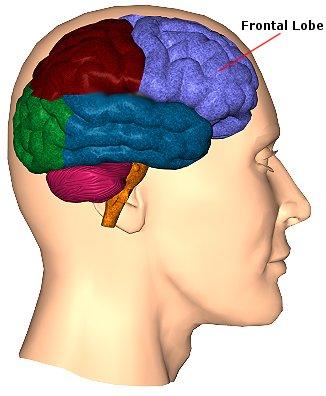by Dr. K. Dillard The shootings at Virginia Tech remind us of other senseless massacres and of insane killers like Jeffrey Dahmer, Charles Manson. We are both repelled and disgusted by these cold blooded murders and also strangely curious about them. We try to imagine how could they do these things? What goes on in their mind? How are they so different from the rest of us?
  Charles Manson & Jeffrey Dahmer, mass murderers with apparently no conscience. Psychiatrists and those who study criminology, tell us that these people are different from the rest of us. They are called sociopaths, or antisocial personalities. The American Psychiatric Association defines a sociopath as follows:
Antisocial personality disorder is characterized by a lack of regard for the moral or legal standards in the local culture. There is a marked inability to get along with others or abide by societal rules. Individuals with this disorder are sometimes called psychopaths or sociopaths. This definition doesn't quite tell the whole story, though. Sociopaths are often disguised as ordinary, even likable people; but a closer look at their lives shows that they often cause heartbreak and catastrophe to anyone who makes the fatal error of getting close to them. People with this disorder appear to be charming at times, and make relationships, but to them, these are relationships in name only. They are ended whenever necessary or when it suits them, and the relationships are without depth or meaning, including marriages. They seem to have an innate ability to find the weakness in people, and are ready to use these weaknesses to their own ends through deceit, manipulation, or intimidation, and gain pleasure from doing so. In short, sociopaths are like a person who lives inside a room full of mirrors. They are motivated by their own needs and feelings and only interact with other individuals as a means to gaining something that they feel they need. They have no regard for the other person's feelings or consequences beyond their own personal goals. Romantically, they can be charming, give flattering comments and do little favors and give apparent undivided attention -- all the activities that we usually associate with someone who is kind and loving. But these are just learned behavior -- a means to an end -- and disguise the fact that the sociopath has no feeling of empathy or love, as most people know it. Taken to the extreme, a sociopath is capable of murder, rape and violence. They can beat up an old woman, abuse a child or kill students in a classroom with calm, calculating precision. They simply do not feel the sense of right or wrong, or compassion. To the sociopath, these concepts are intellectual -- not emotional.
Psychopathic killers, however, are not mad, according to accepted legal and psychiatric standards. Their acts result not from a deranged mind but from a cold, calculating rationality combined with a chilling inability to treat others as thinking, feeling human beings. Such morally incomprehensible behavior, exhibited by a seemingly normal person, leaves us feeling bewildered and helpless. So how do people get this way?
This area of the brain is responsible for "self-control, planning, judgment, the balance of individual versus social needs, and many other essential functions underlying effective social intercourse". This area is also related to fear conditioning. The abnormal anatomy or chemical activity within this area of the brain may be caused by abnormal growth (possibly genetic), brain disease, or injury. This theory has been supported by much research using positron emission tomography (PET) which visually shows the metabolic activity of neurons within the brain. A second factor believed to be partially responsible for the sociopathic disorder in some cases is the primary socialization of individuals within dysfunctional environments, such as abusive, poorly educated, or poverty stricken homes. For years, this was thought to be the primary cause of sociopathy. But as knowledge has increased in the area of neuroscience, it has been realized that this is possibly only a secondary cause. Therefore, it can be said that the type of brain the sociopath was born with and/or the environment in which it was nourished forms the sociopath (Andreasen, 1984). But this conclusion is not without controversy. Brain growth and changes can occur in the developing human because of environmental and social factors. The fact that abnormal physical changes have been found in the brains of sociopaths does not mean that they were born this way. Things like not having a father during pre-adolescence or of being raised by non-loving parents or foster parents can cause a re-organization of brain functions and structural changes that are evident in adulthood. The lack of loving parents has been shown to have sociopathic consequences in primate studies. Further, these characteristics appear to be transmitted from one generation to another, as sociopaths lack the capacity to love their own offspring. An estimated 3% of all adult males have this sociopathic disorder. (The antisocial personality disorder is uncommon among women.) Only a small fraction of this percentage actually develop into violent criminals. Most sociopathic individuals are able to control their disorder within the boundaries of social tolerability. They are considered only 'socially obnoxious' or hateful personalities, and every one of us knows of someone who fits the description. Corrupt and callous politicians, social or career fast climbers, authoritarian leaders, abusing and aggressive persons, etc., are among them.  Most extreme sociopaths end up, at some time, in the prison system. A common characteristic is that they engage systematically in deception and manipulation of others for personal gain. In fact, many successful and adapted non-violent sociopaths can be found in our society. An NIMH epidemiologic study reported that only 47% of those who met the SPD criteria had a significant arrest record. The most relevant events for these persons occur in the area of job problems, domestic violence, traffic offenses,and severe marital difficulties. More easily recognized and studied are the sociopathic individuals with histories of violent criminal behavior. As much as 15-25% of society's inmate population show many traits of this disorder. It is these incarcerated individuals as well as individuals in mental institutions on which most of the research on antisocial personality disorder is based. The sociopath could be the intelligent and very successful businessman that goes home each night and abuses his family. He could be the temperamental man that visits the bar regularly and who often gets into brawls. The study of criminology and criminal justice has provided numerous breakthroughs on the minds of criminals, as well as, constructed theories on potential steps to prevent future harm. A degree in criminology will help you understand the motives of a sociopath but a masters in criminal justice will help you study the methods of preventing crime. Is there a cure for sociopathy? Sadly, no. Because there is no cure for adult sociopathy, the only useful option is prevention. Child psychiatrist Jack Westman estimates that each typical sociopath will cost society $3 million over the course of his lifetime, yet society does virtually nothing to address this condition. Further, as we develop more technologies like television the internet and video games, sociopaths become empowered to develop their anti-social behaviors without the personal contact that contributes to healthy socialization.
Anti-psychotic medications and the new class of serotonin reuptake inhibitors (SRIs) are often prescribed for sociopathic personalities that are wrongly diagnosed as being depressed. Prozac and Zoloft have been implicated in exacerbating the violence of sociopaths by further eliminating the emotional consequences of acting on dangerous impulses. What should be done? We need to address this problem from many sides. Poverty, although a contributing factor in "loveless" childhoods, is not the primary factor. Many loving and moral people come from impoverished environments. Many times, this environment contributes to an individual's character. The main problem seems to be in the process of parenting itself.
 Parenting class should be mandatory curriculum in our schools. We teach many things in our schools: carpentry, housekeeping and cooking, computer skills... These are all great for future employment. But what do we teach about being a good parent? Perhaps a mandatory curriculum in our schools should include exposure to the benefits of loving and caring parental skills. This type of exposure to "parental psychology" might prevent future sociopaths and it also might alter budding sociopaths before their neurological hardware becomes hardwired for a life of emotionless pain.
Comments: Hi, Rebecca H. Hi, G. Benger Put these scums in prison and release all the sane people who smoked pot! What a crazy legal system we have! Anonymous Hello, I still have very few friends and feel sad most of the time but I have never done anything illegal and I have never been in prison. A couple of years ago I got just tired of living and cut my wrists and was admitted to a psychiatric hospital. I wasn't angry or anything -- just tired of living and being unhappy. I would never do anything like the shooter did. Carli Hey, I disagree with psychopaths being mainly male. According to French researcher Isabelle Nazare Aga they are to be found equally among both sexes at around 2 to 3 percent of the population. In her terminology they are called "manipulators" (in French they are also known as "perverse narcissists"). She characterises them as destructive, cunning, without morals, wearing different masks. They can be but are not necessarily physically violent. They can manipulate entire social networks (family, work, school) and even psychiatrists, judges and social workers against their chosen victim(s) and perversely enjoy the suffering they inflict upon them. Also known is the phenomenon of the "successful psychopath", the very smart but emotionally underdeveloped person, who moves to the top of the social ladder, leaving a trail of destruction behind him... or her. I have been involved with this type of person several times in my life, and in my case female psychopaths outnumber male ones. Psychopathy is a defense mechanism which is formed from early childhood with the aim to preserve the physical and psychic integrity, often in the face of events which are experienced as extremely traumatizing or even life threatening. We all have defense mechanisms, but in the case of the psychopath, the defense mechanism functions as a permanent trait and it is destructive to others. Thus, a psychopath is a person trying to "survive at the expense of others". If you have become the victim of a psychopath, the most important advice is: "run away as fast as you can", put yourself out of their reach. If that is not possible gain information on how to deal with the situation (books, internet, psychiatrist). Talking is useless, it almost never happens that a psychopath heals. It can be necessary to find out why one has become vulnerable to this kind of human parasitism and to address this vulnerability. Psychopathy checklist: The 30 characteristics of the manipulator (psychopath, in French "perverse narcissist") from the book "Les manipulateurs sont parmi nous" by Isabelle Nazare Aga. In order for a person to be a psychopath, at least 14 items from this list must be present as permanent traits. For example item 18: almost everyone has told a lie at some points in their life, but item 18 only applies if a person uses lies as a habitual strategy.
[] 1 Burdens others with guilt while appealing to family ties,
friendship, professional ethics; It is entirely possible that if you are not intimately involved with a psychopath and/or are not the direct victim, that you have not noticed very little of the above signs. These people can be experts at projecting a likeable public image. It is very, very important, if you are a victim of a psychopath, to get your experience validated. It can take a lot of time and difficulty to recover from the damage done by a psychopath. Often the people near you will not believe that this "nice person" (the "charming" mask) has done all these horrible things to you. It is necessary that our society becomes aware of what psychopathy is, how these people inflict damage and how their attempts can be made unsuccessful. J. Storms |
Other unexplained photos on this site:
If you have a suggestion or a photo to submit, send it to:
Editor/viewzone.com
myristicin@hotmail.com
 The causes of this sociopathic disorder have been narrowed to several factors
through research. One of the primary causes of sociopathic behavior is believed
to be neurological abnormalities mainly in the frontal lobe [Left] of the brain.
The causes of this sociopathic disorder have been narrowed to several factors
through research. One of the primary causes of sociopathic behavior is believed
to be neurological abnormalities mainly in the frontal lobe [Left] of the brain. In the case of the Virginia Tech shooter, Cho Seung, we see how clearly the medical and mental health system failed to handle this blatant example of sociopathic behavior. Described as a "loner" with a violent obsession, Cho had all the characteristics of an individual who was in his own world, surrounded by his own unmet desires and goals and frustrated by his lack of social skills. His anger at father figures, authority and successful people further caused him to withdraw inward. In the end, his lack of emotion allowed him to commit the mass murders and to do the ultimate act of denial -- his own self-preservation.
In the case of the Virginia Tech shooter, Cho Seung, we see how clearly the medical and mental health system failed to handle this blatant example of sociopathic behavior. Described as a "loner" with a violent obsession, Cho had all the characteristics of an individual who was in his own world, surrounded by his own unmet desires and goals and frustrated by his lack of social skills. His anger at father figures, authority and successful people further caused him to withdraw inward. In the end, his lack of emotion allowed him to commit the mass murders and to do the ultimate act of denial -- his own self-preservation.